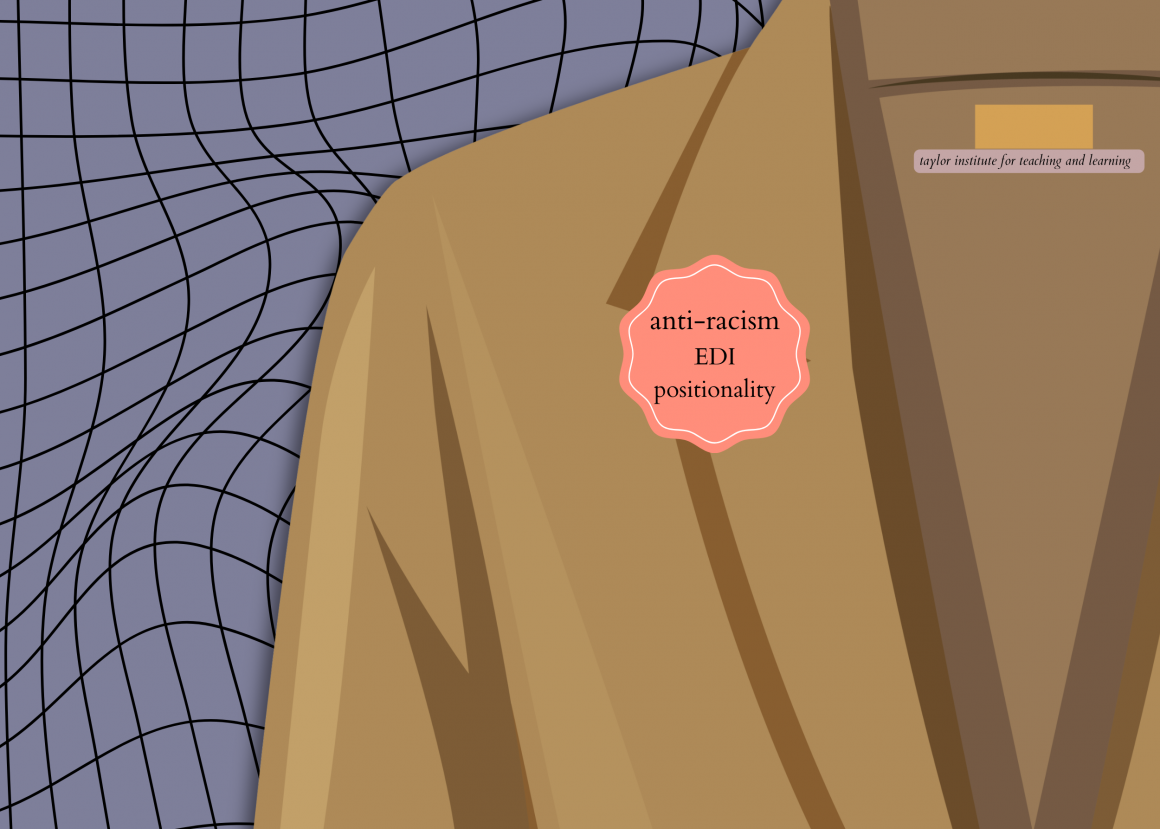
Anti-racism in the classroom: A new badge for faculty
By Kimberly Taylor, September 27 2023—
In response to increased curiosity about anti-racism work and how to apply anti-racist actions to the academic setting, the Taylor Institute for Teaching and Learning is offering a new micro-credential for faculty: Anti-Racism in Teaching and Learning badge. The first cohort was full and began on Sept. 19.
The program was developed by Dr. Fouzia Usman, an educational development consultant with the Taylor Institute specializing in equity, diversity, inclusion, accessibility and anti-racism. In an interview with the Gauntlet, Usman explained that the goal of the badge is for participants to examine anti-racist pedagogies.
“They are going to be doing that from the lens of critical race theory. We’re going to use critical theory as a conceptual framework for this course. In doing so they will also explore whiteness, they will look at racism, how that operates as a system of oppression and eventually look at how that translates into teaching and learning,” said Usman.
“So how does this show up in our classroom, how does this show up in our teaching practices and then from there on identifying strategies to take on anti-racist approaches in their teaching and learning spaces and in their pedagogical practices as well.”
The university has offered anti-racism-focused in-person workshops and has an online module that participants can take at their own pace. The new badge is a blend of in-person discussions and online readings, culminating in a capstone project. Usman said the badge uses a pragmatic approach featuring case studies and asking participants to identify and incorporate anti-racism strategies into their teaching. The course has different modules featuring specific topics.
“Looking at these different areas and then looking at how that unfolds within the space of post-secondary teaching and learning. We are going to provide them with certain resources and tools,” said Usman. “So there will be readings around these topics, tying in theory with practice as well. And to give it that pragmatic approach there will be case studies, there will be discussions and then we will also invite participants to identify strategies that they can see themselves applying within their own teaching practice.”
The badge was developed over the last three years in conversations with faculty and administration to go deeper into anti-racist theory and practice. Usman said she hopes that participants will feel a level of confidence in applying anti-racist strategies in their own classrooms.
“To really walk away with a sense of confidence in applying this in their teaching and learning because I know with anti-racism sometimes when we have these conversations it can seem inaccessible, it can seem overwhelming, it can be daunting,” she said.
“But at the end of this badge, I would really want our participants to feel a certain level of confidence in taking this back to their faculty, taking this back to their classrooms in their own teaching practices and understanding why we really need to engage with this and the urgency around it.”
Usman disclosed that she was unsure if there were any other Canadian institutions offering training like this, and that it is a significant step for the U of C.
So far the badge has received positive feedback and a lot of enthusiasm from faculty and senior leadership at the university.
“Now is the time to do this. I am just really thrilled that there is institutional support around this, that faculty members are open to this,” said Usman. “I am excited to take this forward with the team. I hope that this will continue [and ]that this will grow here at our institution.”
For more information about anti-racism, the Taylor Institute offers an online module. The city of Calgary also has both an anti-racism strategic plan and a website of resources surrounding this topic.
